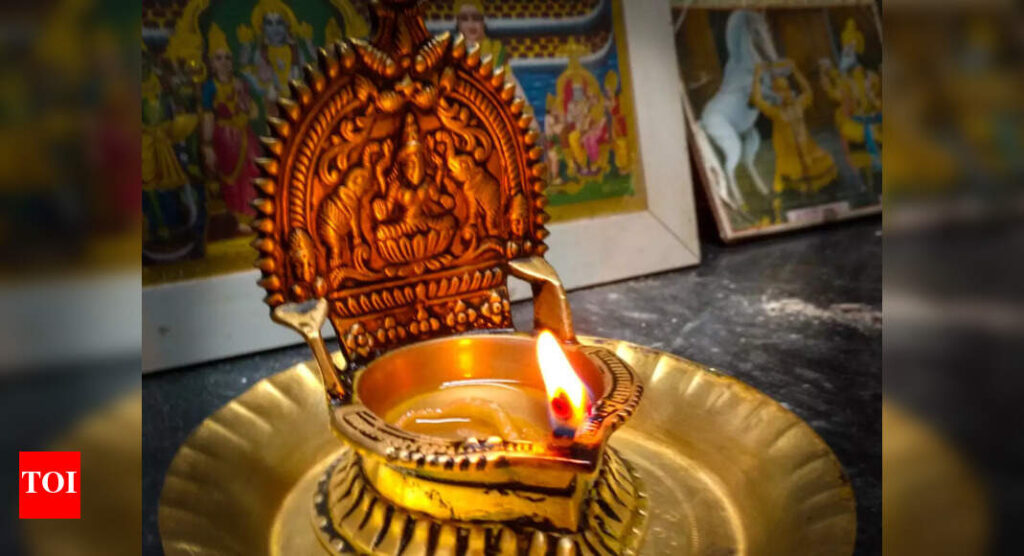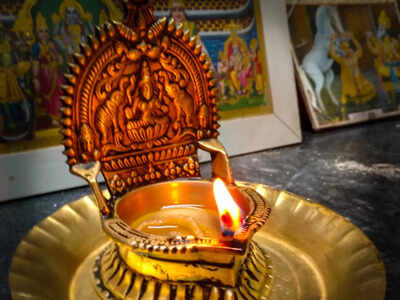Understand the Religious Significance of Donating Pots and Shoes on Nirjala Ekadashi

The festival of Nirjala Ekadashi is observed on the Ekadashi of the Shukla Paksha (waxing phase) of the month of Jyeshtha. This year, Nirjala Ekadashi will begin on June 6 and conclude the next day, June 7. For the general public, the fast will primarily be observed on June 6.According to Celebrity Astrologer Parduman Suri, since this Ekadashi falls in the summer month of Jyeshtha, it is considered auspicious to donate items that provide relief from heat. After completing the fast, one should donate a pot filled with water, fruits, sugar, grains, clothes, shoes, umbrellas, and hand-held fans. Donating chickpeas with jaggery, mangoes, and melons to the needy is believed to attract special blessings from Lord Vishnu. It is believed that offering donations to the needy on this day helps to overcome financial difficulties, illnesses, conflicts, and other problems in life.It is also believed that observing Nirjala Ekadashi grants the same spiritual merit as observing all 24 Ekadashis of the year. This time, the Smarta tradition will observe Nirjala Ekadashi on June 6, while followers of the Vaishnav tradition will observe it on June 7. On Ekadashi, the Moon is positioned on the 11th lunar mansion (nakshatra) in the sky, making the mind highly restless. Fasting on Ekadashi helps gain control over the mind.All rituals, worships, and fasts prescribed in scriptures aim to concentrate the mind. Without a focused mind, one cannot form strong resolutions, and without strong resolutions, one cannot attain spiritual powers (siddhis). Therefore, mastering the five sense organs, five action organs, and the mind—altogether eleven elements—makes one as pure and divine as Ekadashi itself. According to scriptures, the body is like a chariot and the intellect is its charioteer. Our body consists of eleven senses, with the mind being the eleventh.Bhima Observed the Ekadashi FastBhima, one of the Pandavas known for his immense appetite, once decided to observe a fast. Upon hearing from Sage Vyasa that one should stay completely foodless on every Ekadashi, Bhima admitted that he found fasting difficult due to his constant hunger. He asked for an alternative that would still bring him spiritual benefit. Vyasa advised him that if he couldn’t observe all 24 Ekadashis, he should at least keep one Nirjala Ekadashi, which would bring the merit of all 24. Bhima followed this advice and attained heaven. That is why this Ekadashi is named Nirjala, meaning “without water.”Why Eating Rice Is Prohibited on EkadashiRice contains a high amount of the water element because it is cultivated in waterlogged fields. Since the Moon influences water, consuming rice increases the water content in the body, which in turn makes the mind restless. The Moon’s pull on the water in the body creates mental agitation. For someone observing the Ekadashi fast, eating rice interferes with the concentration needed for prayers, chants, and spiritual listening. Hence, eating rice on Ekadashi is strictly prohibited.Written By: Celebrity Astrologer Parduman Suri..!!
Discover everything about astrology at the Times of India, including daily horoscopes for Aries, Taurus, Gemini, Cancer, Leo, Virgo, Libra, Scorpio, Sagittarius, Capricorn, Aquarius, and Pisces.






